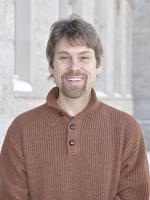Good Monday morning, geographers--
Three important announcements first…then a birthday celebration!
Don’t forget to sign up for the Geography Department’s overnight camping trip and guided interpretation of Arrow Rock State Park from Friday, September 24 at 3PM through Saturday, September 25 at Noon! The cost for you is only $2! But there are only 30 spots available! RSVP soon by completing this Qualtrics survey: https://missouri.qualtrics.com/jfe/form/SV_dmLf1Ic86CC8BQa
The semester’s first meeting of GTU/Geography Club is this Wednesday, September 15 in Stewart 216 at 4pm. Please join us for lots of exciting events and activities this semester. Geography Club is also an awesome way to get to know other likeminded majors in the department. Contact Doug Hurt or Club President Sarah Frost (sefxb6@mail.missouri.edu) for more information.
Today! 5pm! Heidelberg Restaurant! Come to the first installment of the fabled Heidelberg Research Council, a department “social” that is open to all members of the departmental community. Join in for good conversation, good eats, and good company. First round of appetizers is on the department! If you can’t be there at 5pm or so, please email Clayton Blodgett (blodgettc@missouri.edu) to let him know—it helps with asking for the right number of seats in the restaurant.
Now, for our birthday announcement. September 14th is the birth date of polymath and geographer Alexander von Humboldt (1769-1859), who was born 252 years ago today in Berlin, Germany. Humboldt combined extensive travel and fieldwork with systematic empirical measurement, intensive naturalistic description, and scientific reasoning to produce some of the earliest theories of environmental processes and human-environment interaction in the modern European era. His sprawling, multivolume work, Kosmos sought to explain the underlying natural laws of the entire universe. Given the scope of this work, perhaps it should come as no surprise that he died while working on volume 5. Humboldt was among the first Europeans to document the effects of human-induced climate change—twice, and in different parts of the world (Venezuela and Russia). As part of the Romantic movement, he saw no necessary distinction between the arts and science—the two informed one another, as the artwork that appears in his work amply demonstrates.
If you’re looking for a good excerpt of original material to read, check out Humboldt’s account of his ascent of Chimborazo volcano on his famous expedition to the Americas (1799-1804), as described in his Personal Narrative of Travels to the Equinoctial Regions of America, available for free download. For those looking for a great intellectual biography of von Humboldt, get Andrea Wulf’s The Invention of Nature: Alexander von Humboldt’s New World, which you can borrow from our very own Jesse H. Wheeler Library!
M-I-Z!
Z-O-U!
Soren
